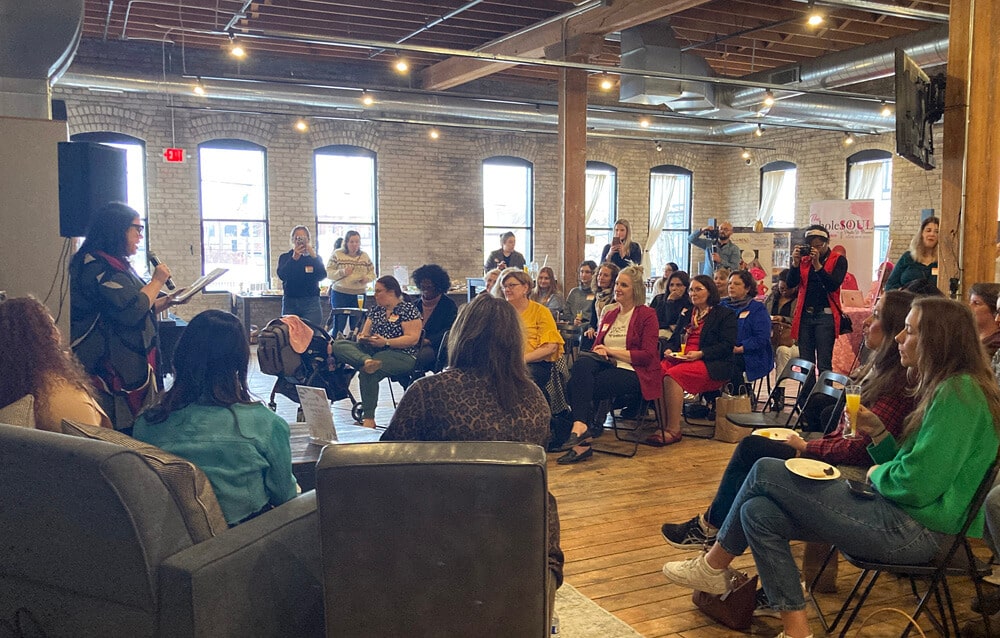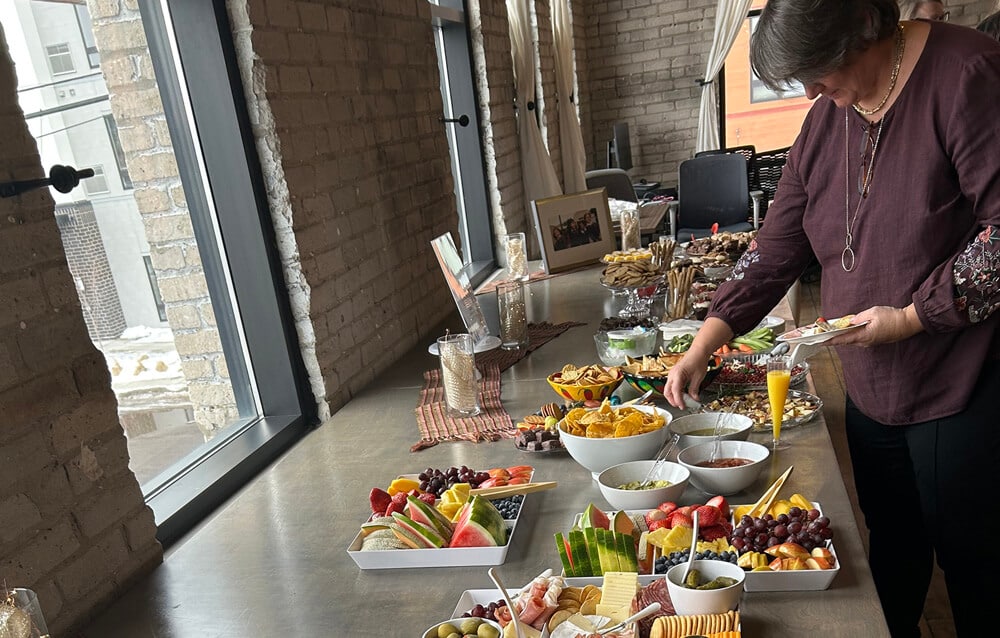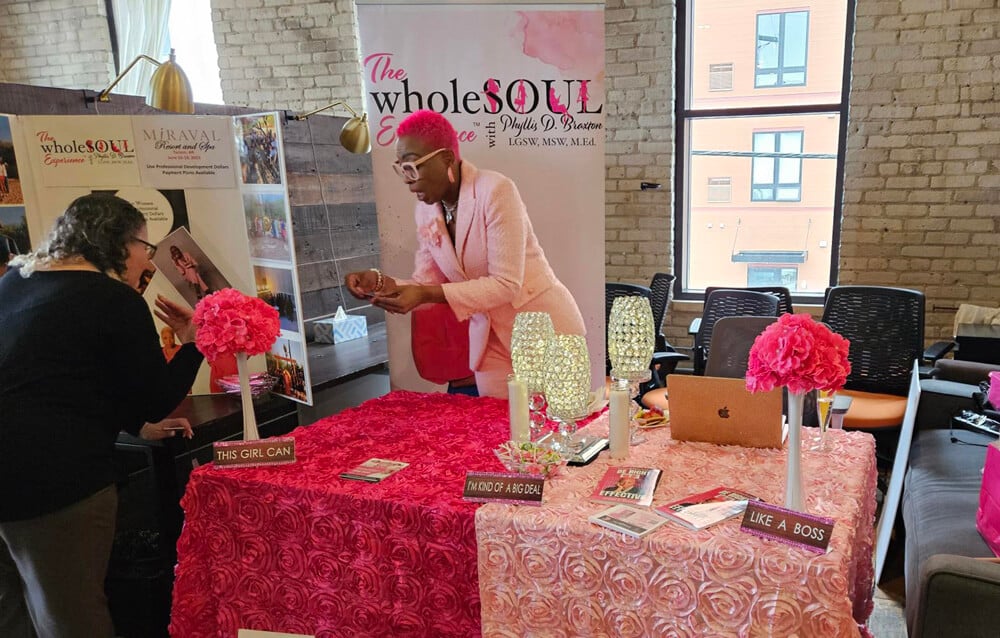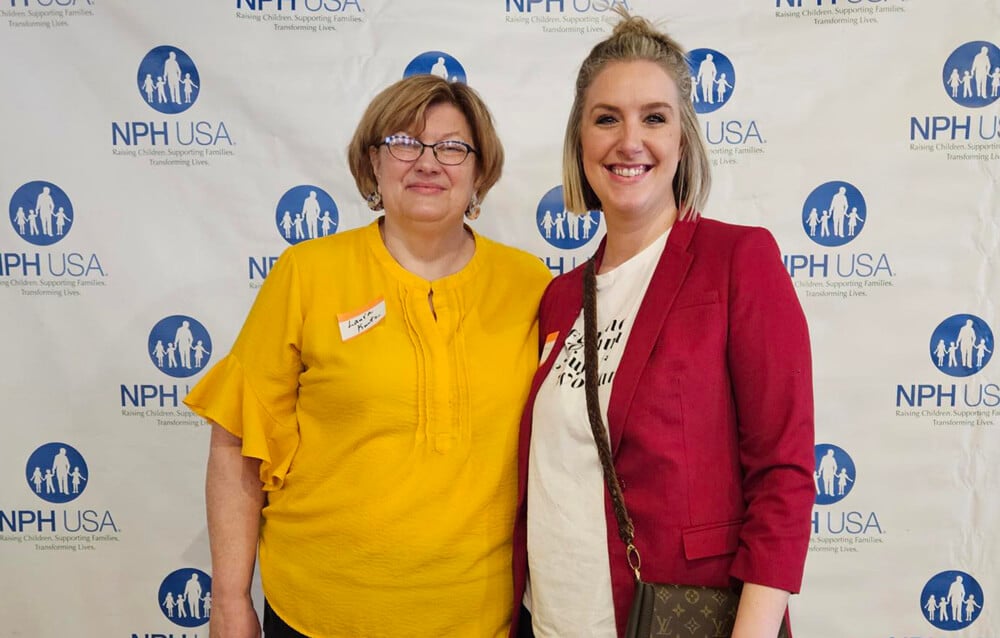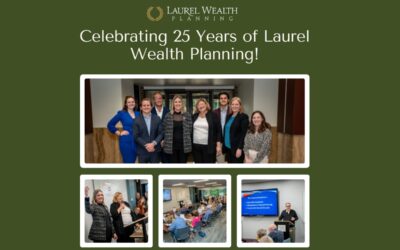Because equity is important to us as a firm with a specialty in serving women decision-makers, Laurel Wealth Planning recently sponsored an event called Women Embracing Equity. Mallory Kretman and I attended the event, which was both thought-provoking and enjoyable. I’d like to share a few themes that resonated with me.
Equity is for everyone
A common misconception about equity is that it only applies to marginalized people, but equity grants the opportunity for everyone to earn their way to their potential: whether man or woman, a member of the majority or minority.
An example of equity is a company offering both maternity leave and paternity leave to not only lessen the financial burden of having a baby but to spread the job of taking care of a new baby across people of all genders.
All people navigate biases every day — whether conscious or unconscious — that have real consequences in their lives. Being aware of our own biases can help us create a world that is equitable for all.
Speaker Celina Martina, a senior manager of DEI with Metro Transit, said she faced discrimination in her native country Argentina because of her body type. She was told she did not fit the image they wanted to create. This was the catalyst for her moving to the United States. She now thinks about equity every day in every place, thinking about who is being treated as “the other.”
Equity requires resources
There are various resources in our society to help level the playing field in many situations. One could argue there are not enough resources, but something that struck me at the event was the reality that current resources are sometimes unknown to those who most need them.
One of the speakers, Karina Villeda, is a 27-year-old community college student raised by a single mom from El Salvador. She started college a couple of years ago without any financial aid and found out about the Free Application for Federal Student Aid (FAFSA) a week into her schooling and was able to apply just in time to qualify for aid that year. She said she would have started college right out of high school if she had known about the FAFSA.
Karina recently met another student who said he hadn’t filled out the FAFSA because he didn’t think it was real. The panel moderator added that she knew of a senior high school who had called the Girl Scouts for help filling out the FAFSA because she didn’t know where else to turn.
We can’t assume just because a resource exists that everyone knows about it or knows how to take advantage of the opportunity.
Power used wisely can support equity
Power imbalances can cause inequities, but power can also mean holding one’s own power, which can help remedy inequities.
Using one’s power can start with everyday activities like talking to the school principal if there is a concern about educational equity. Where we believe equal access to opportunity is denied – for ourselves or anyone – we can use our power to take it up the ladder to seek change.
Villeda, the college student, does this as the vice president of LeadMN, advocating for college students at Minnesota’s Capitol. She said that at one point in her life, she felt invisible, but now she feels she has a voice and her goal is for everyone to have a voice.
Another speaker, Natalie Standridge, did this by founding Casa de Corazon, a Spanish language immersion daycare with five locations. She says women must heal their own wounds and find a balance so they come from a strong place to be caregivers and leaders in their communities. I understand Natalie’s view and do think women often take on many roles – parenting, caring for parents, work, and community involvement – trying to do them all well, which can be stressful. I have always been deeply grateful for the partnership of my spouse, Tom, who was our primary parent and still keeps the home front organized.
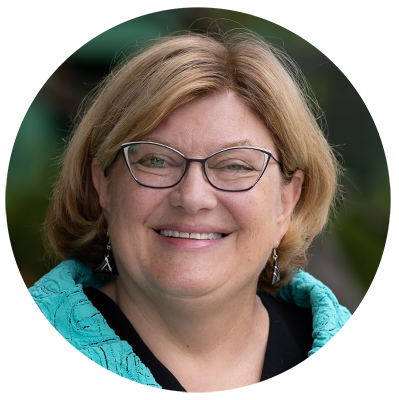
Laura, the founder of LWP, is a Senior Wealth Manager, Chief Investment Officer and Shareholder. She has a master’s degree in tax and is an excellent listener. While she is a sophisticated financial planner with experience in complex issues, her priority is ensuring a financial plan works for people.

